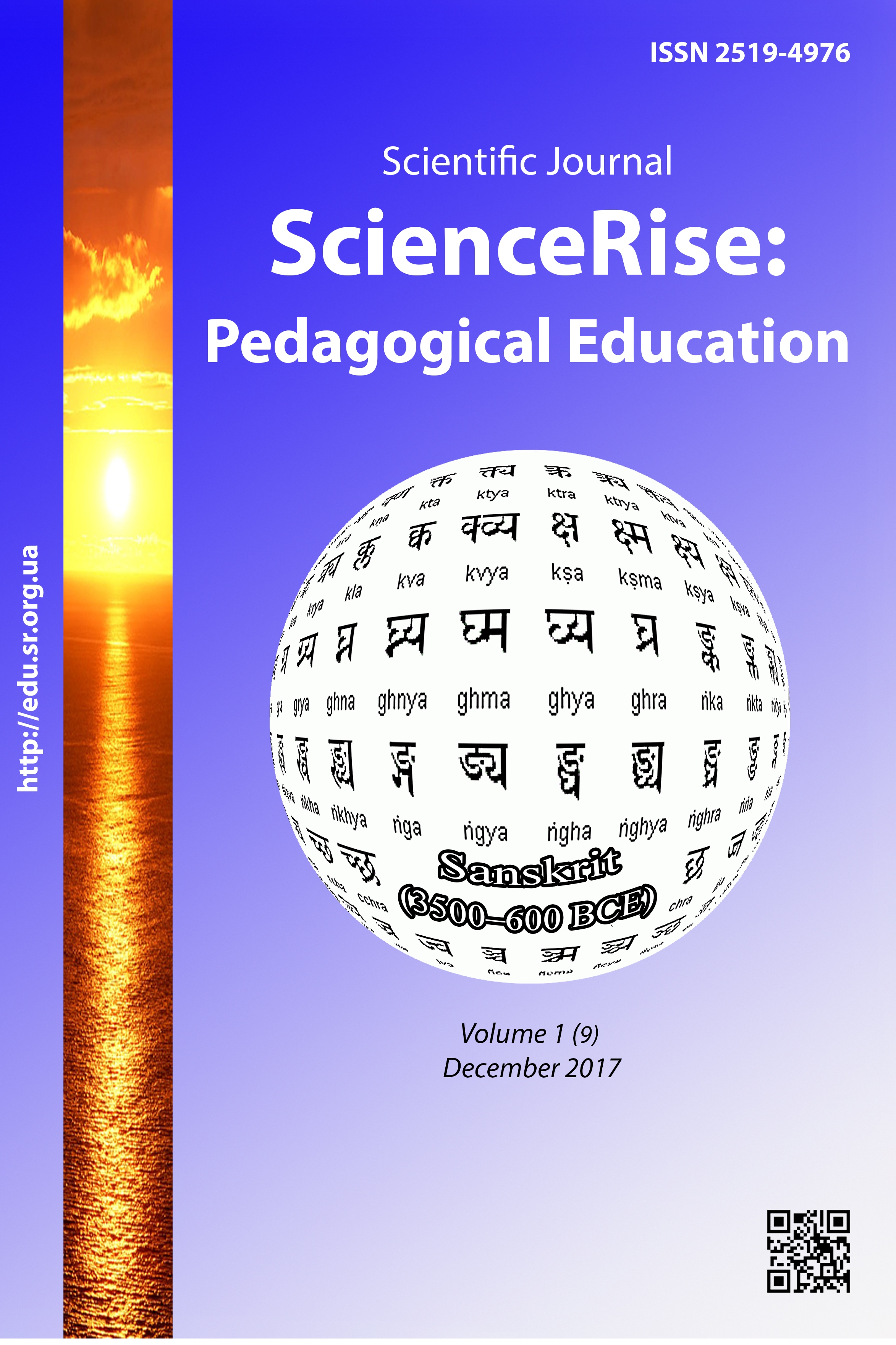Analysis of the management of organizational culture as positive image prediction substrate of general educational institutions
DOI:
https://doi.org/10.15587/2519-4984.2017.91613Keywords:
organizational culture, prognosis of development, positive image of school, structure of school imageAbstract
The article discovers the features of development of organizational culture of general educational institution as a base of its positive image prediction.
The retrospective analysis of the essence of notions “culture”, “organizational culture”, “positive image of educational institution” and other was carried out.
During the study the most influential factors of OC development were grounded:
– external ones that take into account the features of political and economic situation in the state; general culture of society, region, micro-society;
– internal ones that take into account the terms of existence of general educational institution (GEI)), character of traditional organizational culture (OC), success of GEI activity.
From our point of view, the main principles of management of development of organizational culture of modern educational institutions are the following: the principle of generality – organizational culture must be assimilated by all or most members of organization; the principle of validity - GEI mission, traditions and specificity of activity must be the base; the principle of accessibility – provides clearness and acceptability of organizational culture to guarantee the importance of its understanding by all workers – from managerial team to pedagogical workers; the principle of respect to individual personal culture and general school culture.
The main carriers of organizational culture of educational institution are its director, managerial team and pedagogical, pupils’ and parents’ collectives. That is why the main components of positive GEI image are the image of director, managerial team, teacher, pedagogical and service staff of school.
During the study we made the conclusions that general educational institution is an open socio-pedagogical system, connected with many social institutions that has formed organizational culture as a substrate of own unique image – positive image of educational institution that provides the priority of educational services among other GEIReferences
- Tymoshko, G. M. (2012). Analysis of «Organizational culture» in educational theory and practice. Bulletin of the Chernihiv National Pedagogical University, 96, 148–153.
- Serkis, J. V. (1999). Organizational Culture. New school teacher thought, 2, 24–28.
- Spitsyna, L. V. (2016). The study of organizational culture as a factor in the effective management of higher educational institution. Practical Psychology and Social Work, scientific and practical, educational and methodical, 12, 14–18.
- Karamushka, L. M. (1996). Creating the image of the institution as an important area of management education. Management of modern educational institutions in the education system, 11–15.
- Volovych, V. I. (Ed.) (1998). Sotsiolohiya: Short Encyclopedic Dictionary. Kyiv: Eng. Center spirit. Culture, 736.
- Sovetskyy Encyclopedic Dictionary (1981). Moscow: Sovetskaya Encyclopedia.
- Shepel, V. M. (1994). Ymydzhelohyya: Secrets personally obayanyya. Moscow, 320.
- Yermakov, I. H. (Ed.) (1998). Imidzh school on the eve of the XXI Century. Kyiv, 382.
- Tymoshko, G. M. (2016). Cultural imperatives organizational activities the head of an educational institution. Bulletin of Chernihiv National Pedagogical University named after Taras Shevchenko, 133, 216–220.
- Tymoshko, G. M. (2014). The modern tendencies of development the organizational culture of the head of general educational institution on the basis of imagelogy. Bulletin of Chernihiv National Pedagogical University named after Taras Shevchenko, 122, 276–279.
Downloads
Published
How to Cite
Issue
Section
License
Copyright (c) 2017 Віра Миколаївна Усатенко

This work is licensed under a Creative Commons Attribution 4.0 International License.
Our journal abides by the Creative Commons CC BY copyright rights and permissions for open access journals.
Authors, who are published in this journal, agree to the following conditions:
1. The authors reserve the right to authorship of the work and pass the first publication right of this work to the journal under the terms of a Creative Commons CC BY, which allows others to freely distribute the published research with the obligatory reference to the authors of the original work and the first publication of the work in this journal.
2. The authors have the right to conclude separate supplement agreements that relate to non-exclusive work distribution in the form in which it has been published by the journal (for example, to upload the work to the online storage of the journal or publish it as part of a monograph), provided that the reference to the first publication of the work in this journal is included.







